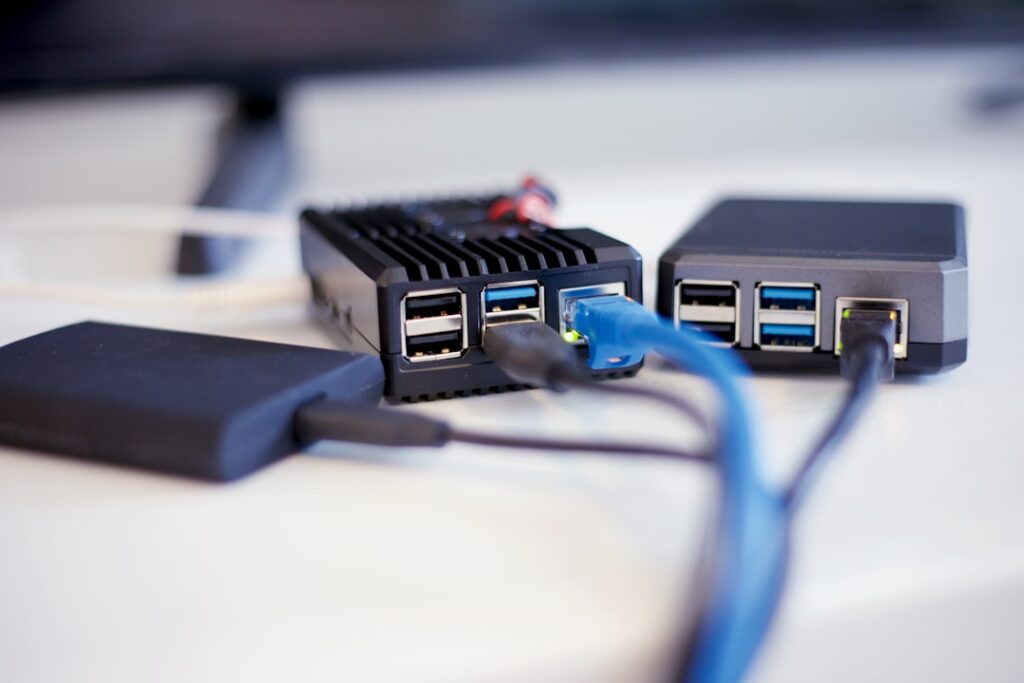Becoming a parent changes everything—including how you think about digital privacy.
In today’s hyper-connected world, your baby’s digital footprint begins long before their first steps—or even their first breath. From pregnancy trackers and baby name generators to social media posts and pediatric patient portals, sensitive data is being created, shared, and stored from the very start.
But here’s the catch: most of that information isn’t protected the way it should be. And once it’s out there, it’s hard—if not impossible—to take back.
At Bison Security Co., we believe digital privacy for new parents isn’t just a tech concern—it’s a parenting essential. Your child deserves a clean slate, and you deserve peace of mind. Whether you’re expecting your first child or navigating your newborn’s first year, this guide outlines practical ways to take control of digital privacy for new parents—starting now.

Table of Contents
- 1 1. Don’t Overshare on Social Media
- 2 2. Limit Use of “Free” Apps and Tools
- 3 3. Say No to Smart Toys and Wi-Fi Baby Monitors
- 4 4. Secure Your Parenting Accounts
- 5 5. Opt Out of Data Brokers and Family Trackers
- 6 6. Talk to Relatives About Boundaries
- 7 7. Create a “Privacy Plan” as a Family
- 8 Take Control of Your Digital Safety
It’s natural to want to share your child’s first smile or tiny fingers with the world—but those precious posts can come at a hidden cost. For many families, social media becomes the start of a lifelong digital trail—one that’s searchable, scrapable, and sellable.
When it comes to digital privacy for new parents, oversharing—even with good intentions—can expose personally identifiable details that cybercriminals and data brokers are quick to collect. From names and birth dates to photos and locations, seemingly innocent posts can build a profile before your child can even speak.
Protecting digital privacy for new parents starts with mindful sharing—and knowing what’s truly necessary to put online.
- Full name and birthdate — core data points used for identity theft
- Hospital or location tags — which reveal where your family lives or frequents
- Facial photos — which can be scanned, scraped, or reused by facial recognition or AI tools
- Family relationships — useful context for phishing, impersonation, or inheritance scams
Why it matters for digital privacy for new parents:
The more information that’s out there, the more vulnerable your child becomes to future exploitation—from hacked educational records to targeted scams.
What to do instead:
- Avoid posting your baby’s full name, exact birthdate, or location details
- Use initials or nicknames instead of full identifiers
- Set your accounts to private and regularly audit your follower list
- Disable location tagging and strip metadata from photos before posting
Taking control of your family’s digital footprint early on is a key part of digital privacy for new parents. Your baby’s first milestones should be remembered with love—not leaked into a permanent online record.

2. Limit Use of “Free” Apps and Tools
That free baby name generator or feeding tracker might seem harmless—but many of these apps are data-harvesting machines in disguise. If you’re not paying with money, you’re likely paying with your data—and your baby’s.
Apps and websites aimed at new parents often ask for sensitive details like:
- Your name, email, and due date
- Your child’s birth date, growth stats, and even feeding patterns
- Your location and device activity
This information is incredibly valuable to advertisers, data brokers, and marketers—who can build lifelong consumer profiles starting in the womb.
Why it matters for digital privacy for new parents:
Every app download or freebie form can quietly add to your child’s digital footprint. That data can be sold, leaked, or used to target your family with ads or scams for years to come.
Common red flags:
- Baby tracking apps with vague or confusing privacy policies
- Pregnancy or parenting forums that share user activity with third-party partners
- “Free sample” giveaways that require extensive personal info
- Apps that ask for device permissions they don’t really need
What to do instead:
- Use apps with clear privacy policies and a track record of transparency
- Opt for privacy-first tools, or go old-school with pen and paper
- Set up alias email addresses using services like SimpleLogin or Firefox Relay to avoid spam and tracking
- Don’t link your main Google, Apple, or Facebook account to parenting tools
When it comes to digital privacy for new parents, less truly is more. Being selective about what tools you use—and what data you share—helps build a safer digital foundation for your family from the very beginning.

3. Say No to Smart Toys and Wi-Fi Baby Monitors
That sleek Wi-Fi baby monitor or interactive smart toy might promise convenience—but it could be a privacy landmine for your growing family. Many of these devices collect far more than you think, from audio and video recordings to behavioral data—and they don’t always keep that information secure.
For families focused on digital privacy for new parents, connected baby gear often poses more risk than reward. Hackers have exploited insecure baby monitors, and companies have been caught sharing data with third parties without consent.
When it comes to digital privacy for new parents, choosing low-tech or locally stored alternatives is often the safer, smarter choice.
Why it matters for digital privacy for new parents:
These “smart” gadgets often record video, audio, and behavioral patterns. If poorly secured, they can be hacked—or quietly send your child’s data to third-party companies.
Real-world risks include:
- Hacked baby monitors that allow strangers to watch or speak through the device
- Cloud-based video recordings of your baby’s crib, accessible if login credentials are leaked
- Smart toys with microphones or cameras that transmit unencrypted data
- Devices that quietly collect and share usage stats, voice samples, or environmental audio
One breach is all it takes to turn a well-meaning tech purchase into a nightmare.
What to do to protect your child’s privacy:
- Stick to non-Wi-Fi baby monitors—like analog audio-only models or closed-loop RF systems
- Avoid toys that connect to apps, have built-in microphones, or require internet setup
- If you do use connected gear, change default passwords, enable firmware updates, and disable any remote viewing features you don’t need
- Research the manufacturer’s data practices before bringing any smart device into your nursery
Digital privacy for new parents means thinking beyond screen time—it’s about the invisible digital doors we open when we connect devices in our homes. Keeping your baby safe doesn’t require Wi-Fi—it just requires wisdom.
Pro Tip: If you do use smart baby gear, consider adding network-level protection with a tool like Bison SafeFilter. It helps block ads, trackers, and malicious sites—giving your family an extra layer of defense without relying on the device maker’s settings alone.

4. Secure Your Parenting Accounts
Protecting digital privacy for new parents starts with you.
As a new parent, you’ll likely juggle multiple accounts that store deeply personal information about your child and your family, including:
- Pediatrician and telehealth portals
- Health insurance and pharmacy logins
- Parental leave or HR systems
- Baby product registries and parenting communities
These accounts often hold medical histories, Social Security Numbers, addresses, and even photos—yet many are secured by passwords like “Baby2024!” or reused logins from other sites.
What to do:
- Use a password manager like Bitwarden to generate and store strong, unique logins for each site
- Turn on multi-factor authentication (MFA)—and choose an authenticator app like Authy or Aegis instead of insecure text messages
- Use Lifelock to check if your personal information or credentials have already been leaked in a data breach
Digital privacy for new parents isn’t just about your baby—it starts with locking down your own accounts.

5. Opt Out of Data Brokers and Family Trackers
Even if you’re careful about what you post, your baby’s personal information can still leak through data brokers and people-search websites. These platforms quietly compile details like your home address, income range, family structure—even your child’s name—and make them available to marketers, scammers, and anyone who’s willing to pay.
Digital privacy for new parents means being proactive—not just with what you share, but with what’s being collected behind the scenes.
How it happens:
- Data brokers gather information from public records, social media, online forms, and “free” parenting apps
- People-search sites (like Whitepages, Spokeo, and MyLife) repackage that info into searchable directories
- Smart devices and digital assistants may passively collect data about your family’s routines and environment
What to do:
- Opt out of top data broker sites
- Avoid entering real names or birth dates into “baby name generators” or quiz-style tools
- Turn off voice recording, tracking, and “personalization” on smart speakers, TVs, and assistants
- Use a separate email alias for parenting-related accounts to isolate spam and tracking
Reducing your family’s digital footprint early on is one of the smartest steps you can take to strengthen digital privacy for new parents—and protect your child from future exploitation.

6. Talk to Relatives About Boundaries
You can take every precaution—but if Grandma posts a photo with your baby’s full name, date of birth, and location, your efforts can unravel fast. Digital privacy for new parents isn’t just a solo act—it’s a family conversation.
Why it matters:
- Well-meaning relatives often share milestones or photos without realizing the risks
- Social media posts can expose identifying details to strangers, data brokers, or even bad actors
- Once shared publicly, that information can be archived, scraped, or misused indefinitely
What to do:
- Set clear boundaries about what’s okay to post—and what isn’t
- Politely ask loved ones not to tag, name, or location-tag your child in online posts
- Use private photo sharing tools like FamilyAlbum, Google Photos, iCloud shared albums, or encrypted messaging apps instead of public platforms
- Reinforce that protecting your baby’s information isn’t about paranoia—it’s about long-term digital safety
Building digital privacy for new parents starts with getting everyone on the same page. Boundaries now mean fewer regrets later.

7. Create a “Privacy Plan” as a Family
The best way to protect your child’s digital future is to be intentional now. A family privacy plan helps you make consistent, informed choices—before habits get baked in.
What to do:
- Decide together what types of data you’ll share (and what’s off-limits)
- Use private apps or encrypted digital journals to track milestones (instead of social media)
- Store digital copies of important documents—like birth certificates, insurance cards, and medical records—in encrypted folders or password-protected cloud storage
- Set reminders for monthly digital hygiene tasks: privacy setting reviews, app audits, deleting old photos or accounts
A simple, repeatable privacy plan keeps your family proactive—not reactive.
At Bison Security Co., we believe digital privacy for new parents is just as essential as baby gates and outlet covers. When you take time to build a plan, you set your child up for long-term digital safety. Strong digital privacy for new parents starts with everyday decisions that grow with your family.

Final Thoughts: Start Private, Stay Protected
You can’t control everything online—but you can control how much of your child’s life ends up there. The decisions you make today will shape their digital reputation tomorrow.
Digital privacy for new parents isn’t about fear—it’s about foresight. Setting boundaries early helps you build a safer digital environment and sets your family up for long-term success.

Take Control of Your Digital Safety
At Bison Security Co., we believe strong cybersecurity starts at home—and grows with you. Whether you’re a parent, professional, or small business owner, we’ve got your back with the tools and support you need to stay safe in a connected world.
Here’s How to Get Started:
- Protect Your Home Network — Learn about Bison SafeFilter and block threats before they reach your devices.
- Test Your Scam-Spotting Skills — Take our Family Phishing Quiz and see how ready your household really is.
- Stay Cyber-Smart — Subscribe to our newsletter for weekly safety tips, family-friendly checklists, and early alerts.
- Tune In to the Podcast — Coming soon: honest, practical conversations about digital safety for modern families.
Security That Stands Its Ground.
